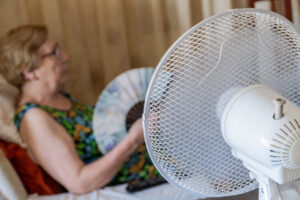
The best wishes of the Jubilee Community Care Board members, staff, volunteers and myself are offered to all clients and your families for this Christmas and New Year.
Jubilee Community Care – A Year in Review
At the start of the year Jubilee was fortunate to have the wisdom and foresight of a new Board. The Board comprised three former long-standing Jubilee Community Care Committee of Management members, including two life members of the organisation; and three new appointees who were added to the Board at its December 2022 meeting.
I was appointed in January and, for clients and families who I have yet to meet, I was the former Director of Jubilee from 2009 to 2021. The new Board and myself immediately commenced the challenge of addressing a number of significant structural, operational and compliance issues facing Jubilee.
A new Finance Manager was appointed and, over the next few months, former key employees were re-employed within the administration, finance, client coordination and human resource areas. A Care Services Manager was appointed to oversee the coordination of client services and we employed additional staff in our aged care services and client coordination areas.
The recruitment outlined above, together with existing employees, has increased our procedural knowledge and provided a stable platform for the benefit of clients and the service.
All staff and volunteers have worked tirelessly to restore Jubilee Community Care as a service provider and employer of choice. The results of this are reflected in our latest client survey – see our story on the survey results on page 3.
Emergencies and Natural Disasters
Jubilee Community Care is committed to planning for the possibility of emergencies and disasters within the community, acting where possible to minimise the disruption of services to clients and employees.
In the event of an emergency or disaster within the community, we will deploy an Emergency Management Team who will be responsible for providing effective management and implementation of the recovery efforts to minimise the impact on clients and employees.
I recommend to clients, employees and all of us to consider developing our own Emergency Plan using the Red Cross RediPlan. The RediPlan is a free disaster preparedness guide with hints and strategies on how to prepare for emergencies and make our own emergency plan. The Guide can be accessed online at:
www.redcross.org.au/globalassets/cms/downloads/pdfs/disaster-plan/red-cross-rediplan-disaster-preparedness-guide.pdf
Please contact us if you would like assistance to develop your Emergency Plan.
Kind regards
Shaun Riley, Executive Director







